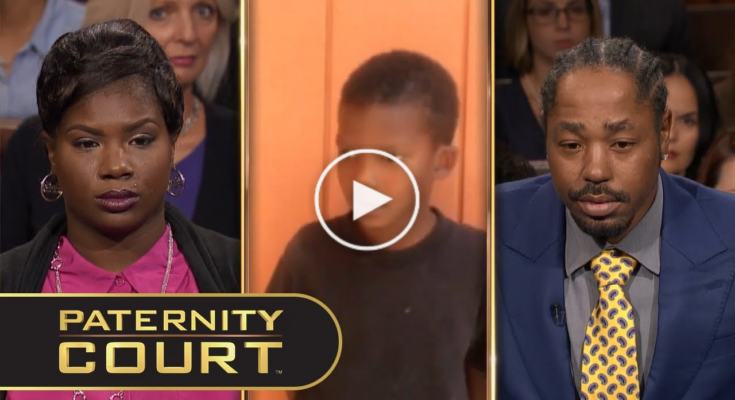Paternity disputes can unravel the fabric of a once-happy relationship, leaving emotional scars on all parties involved. The case of Davies v. Hunter sheds light on the complexities of such disputes, emphasizing the need for a child-centered approach to safeguard the well-being of the child caught in the crossfire. This article delves into the emotional journey of the individuals and explores the significance of open communication, trust, and fidelity in committed relationships.
In Davies v. Hunter, Ms. Davies reveals how suspicions of infidelity eroded the trust in their relationship, leading her to feel insecure and lonely. Mr. Hunter’s doubts about paternity further exacerbated the situation, causing a deep divide between them.
“I have seen too much to keep going along with this. So I have to make sure that this child is mine.” – Mr. Hunter
Despite their four-year-long dispute, the couple hesitated to seek resolution through legal means. This delay only served to prolong the emotional turmoil, affecting the child’s well-being.
“The truth is, I wanted him to be the father, but I wasn’t 100% sure.” – Ms. Davies
The emotional impact on both parties is evident, with accusations of lying and infidelity adding to the strain. The revelation of the DNA test results further exacerbates the pain.
“I don’t understand how she can sit there and lie like that. It hurts.” – Mr. Hunter
The DNA test results reveal that Mr. Hunter is not Jayden’s biological father, leaving both parties devastated. Jayden’s belief in Mr. Hunter as his father crumbles, adding complexity to the already emotional situation.
“I’m very sorry. Don’t cry now.” – Judge Lake
As the truth surfaces, the focus shifts to Jayden’s well-being, emphasizing the importance of a child-centered approach. The child’s emotional attachment to Mr. Hunter underscores the significance of addressing the situation with sensitivity.
“This is hurtful to hear all these things he thought about me. You can’t be too hurt right now. ‘Cause this is not even the first time.” – Ms. Davies
While Mr. Hunter intends to remain in Jayden’s life, Ms. Davies admits the other possible father is likely Jayden’s biological parent. The article highlights the need to prioritize Jayden’s future by fostering a supportive co-parenting environment.
“Jayden is four years old. His entire life he thought Mr. Hunter is his father.” – Judge Lake
The case serves as a cautionary tale, underscoring the destructive impact of infidelity and a lack of open communication in a committed relationship.
“We want to say it’s a double standard, but really it’s just biology. We get pregnant, we carry the children, and we often carry the burden.” – Judge Lake
As the truth about Jayden’s paternity unfolds, the couple faces the reality of co-parenting while dealing with their emotions. The article underscores the significance of creating a stable and nurturing environment for Jayden, regardless of the paternity results.
Co-parenting is essential to ensure that Jayden receives the love and support he needs from both of his parents. This arrangement may not be without challenges, but it places Jayden’s emotional well-being at the forefront.
“I’m willing to move forward, put all the trust issues we had behind us so that… I don’t want Jayden feeling that… How I’m feeling that his father is not there for him.” – Ms. Davies
Navigating the aftermath of a paternity dispute can be emotionally taxing for all parties involved. Seeking professional help, such as family counseling or therapy, can assist in fostering open communication and healing wounds.
“It’s about finding a way to move forward, even if we’re not together. It’s about him not having to go through what he’s going through now.” – Mr. Hunter
Davies v. Hunter exemplifies the emotional toll paternity disputes can take on families, especially the child involved. The article stresses the significance of open communication, trust, and fidelity in maintaining healthy relationships. By adopting a child-centered approach and prioritizing Jayden’s well-being, the individuals can work towards healing and providing a supportive environment for the child’s emotional growth. Ultimately, the case serves as a reminder of the importance of safeguarding children’s emotional welfare when resolving paternity disputes. Through co-parenting and seeking professional assistance, the individuals involved can strive to create a brighter future for Jayden. By placing the child’s needs at the center, they can pave the way for healthier relationships and emotional healing for everyone involved.



